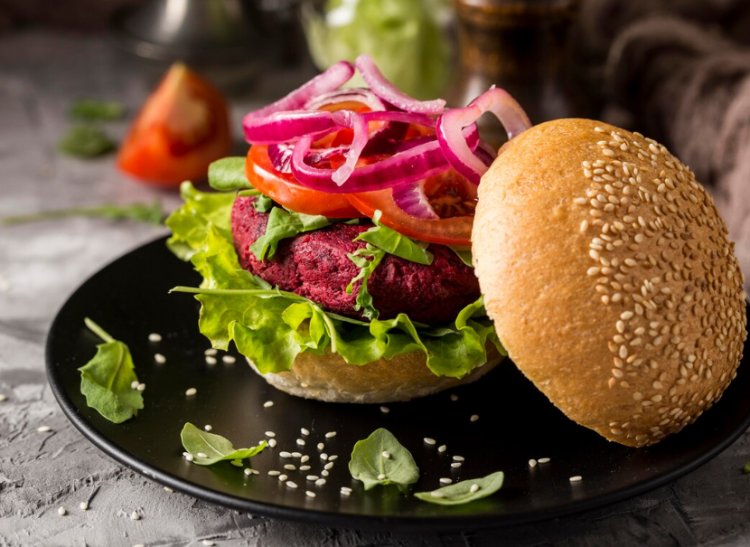Homemade Vegetable Hamburger: Recipe and Nutrition Guide
Vegetable hamburgers are not only delicious but also offer a healthy alternative to traditional meat-based burgers. Packed with nutrients, fiber, and flavor, homemade vegetable hamburgers are perfect for vegetarians, vegans, or anyone looking to add more plant-based meals to their diet. In this article, we'll explore a delicious recipe for homemade vegetable hamburgers along with a nutrition list to highlight their health benefits.

Recipe: Homemade Vegetable Hamburgers
Ingredients:
- 1 can (15 ounces) of black beans, drained and rinsed
- 1 cup cooked quinoa
- 1 cup finely chopped mushrooms
- 1/2 cup grated carrots
- 1/2 cup finely chopped onions
- 2 cloves garlic, minced
- 1/4 cup chopped fresh parsley
- 1 tablespoon soy sauce
- 1 tablespoon olive oil
- 1 teaspoon smoked paprika
- 1 teaspoon ground cumin
- Salt and pepper to taste
- Whole wheat burger buns
- Toppings of your choice (lettuce, tomato, avocado, etc.)
Instructions:
- In a large mixing bowl, mash the black beans using a fork or potato masher until mostly smooth.
- Add cooked quinoa, chopped mushrooms, grated carrots, onions, garlic, parsley, soy sauce, olive oil, smoked paprika, cumin, salt, and pepper to the mashed black beans. Mix well until all ingredients are combined.
- Divide the mixture into equal portions and shape them into burger patties.
- Heat a non-stick skillet over medium heat and lightly grease it with olive oil.
- Cook the vegetable burger patties for about 4-5 minutes on each side or until golden brown and heated through.
- Toast the whole wheat burger buns on the skillet or in a toaster.
- Assemble your vegetable burgers by placing the patties on the toasted buns and adding your favorite toppings.
Nutrition List
Nutritional Benefits of Homemade Vegetable Hamburgers:
- High in fiber from black beans, quinoa, and vegetables, promoting digestive health and aiding in weight management.
- Rich in vitamins and minerals such as vitamin C from carrots, antioxidants from mushrooms, and iron from black beans, supporting overall health and immunity.
- Low in saturated fat compared to traditional meat burgers, reducing the risk of heart disease and promoting a healthy cholesterol level.
- Plant-based proteins from black beans and quinoa, essential for muscle repair and growth, suitable for vegetarians and vegans.
- Versatile and customizable with various toppings and condiments, making them a satisfying and nutritious meal option.
Nutritional Content (per serving):
- Calories: Approximately 250-300 calories (excluding toppings and condiments)
- Protein: About 10-15 grams
- Carbohydrates: Around 30-35 grams
- Fat: About 8-10 grams
- Fiber: Approximately 8-10 grams
- Vitamins and Minerals: Provides a range of essential nutrients including vitamin A, vitamin C, iron, potassium, and more.
Homemade vegetable hamburgers are a flavorful and nutritious addition to any mealtime. With this simple recipe and nutrition guide, you can enjoy a satisfying burger that's packed with wholesome ingredients and benefits. Whether you're following a vegetarian or vegan diet or simply looking to explore more plant-based options, these homemade vegetable hamburgers are sure to delight your taste buds and nourish your body.
What's Your Reaction?





















